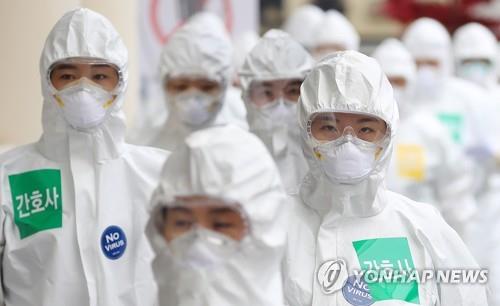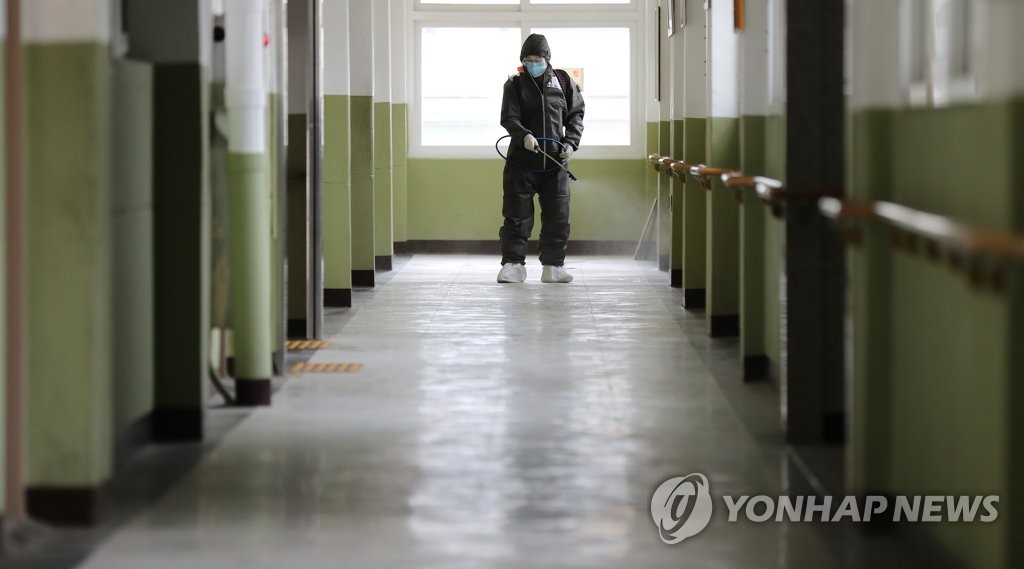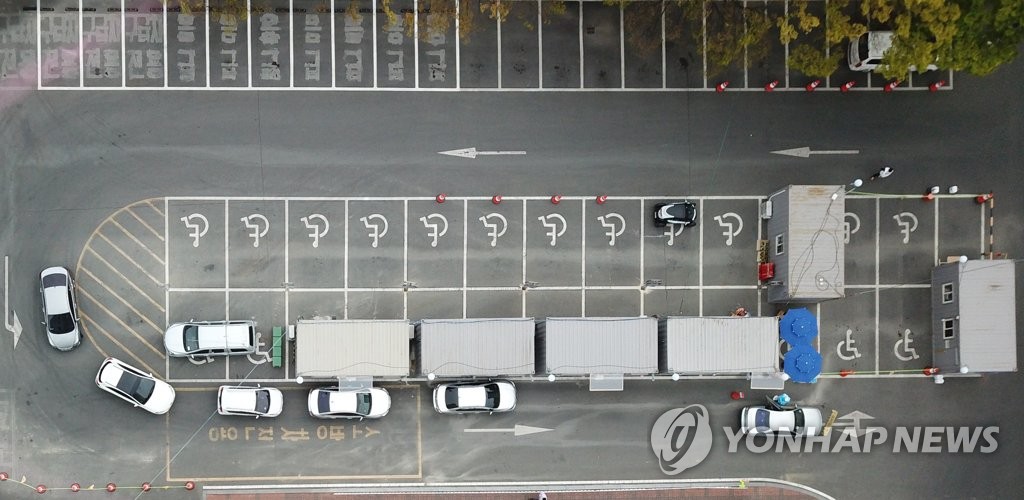- California Assembly OKs highest minimum wage in nation
- S. Korea unveils first graphic cigarette warnings
- US joins with South Korea, Japan in bid to deter North Korea
- LPGA golfer Chun In-gee finally back in action
- S. Korea won’t be top seed in final World Cup qualification round
- US men’s soccer misses 2nd straight Olympics
- US back on track in qualifying with 4-0 win over Guatemala
- High-intensity workout injuries spawn cottage industry
- CDC expands range of Zika mosquitoes into parts of Northeast
- Who knew? ‘The Walking Dead’ is helping families connect
New cases dip below 30 again, social distancing still urged
South Korea on Monday saw its daily number of coronavirus infections fall below 30 again, but health authorities said that the country should not let its guard down against the pandemic, urging people to keep up social distancing.
The 25 new cases, detected Sunday and down from 32 a day ago, brought the nation’s total infections to 10,537, according to the Korea Centers for Disease Control and Prevention (KCDC).
It is the second time since late February that the country’s new virus infections have fallen below 30 after it reported 27 new cases Friday.
Monday’s new virus cases marked a sharp drop from the Feb. 29 peak of 909 new cases, according to the KCDC. The country’s daily number of new virus cases has been below 50 in the last five days.



Medical workers in protective suits begin work at Keimyung University Dongsan Medical Center in Daegu, 300 kilometers southeast of Seoul, on April, 13, 2020. (Yonhap)
But health authorities remain on high alert over cluster infections at churches and hospitals, as well as new cases coming from overseas.
Of the newly reported cases, 16 cases were from overseas, with 12 of them coming from the United States.
“If we ease our social distancing campaign, we may face a result that we cannot handle,” Vice Health Minister Kim Ganglip said. “It’s true that we are seeing a slowdown in the spread of the novel coronavirus, but this does not mean that the virus has been eradicated.”
The nation’s death toll from the new coronavirus, which emerged in China late last year, rose by three to 217, according to the KCDC, adding that 46 patients are currently in critical condition.
The number of patients released from quarantine after making full recoveries reached 7,447, up 79 from a day earlier.
The southeastern city of Daegu, the nation’s worst virus-hit region, added three new cases. Its surrounding North Gyeongsang Province reported four new cases.
Other major provinces and cities also reported infections, with Seoul and the surrounding Gyeonggi Province adding eight and three new cases, respectively.
The country also detected six new cases coming from overseas at border checkpoints. The total number of imported cases is now at 929.
Since April 1, South Korea has enforced mandatory 14-day self-quarantine for all travelers coming from overseas to better contain imported cases.
Starting Monday, all arrivals from the United States have to be tested for COVID-19. Previously, only those with symptoms had undergone tests.
Also from Monday, the government began suspending visa-free entry and visa waiver programs for some 90 countries imposing entry bans on South Koreans so that it can better curb the coronavirus inflow from abroad.
Seeking to reduce the daily number of new infections to below 50, South Korea has extended strict guidelines on social distancing by two weeks to Sunday.
Health authorities said they have inspected 41,476 entertainment facilities, including nightclubs and bars, in the last five days and issued administrative orders for 4,242 facilities that breached quarantine rules.
South Korea has vowed to show no leniency toward those who breach quarantine rules. Violators could face up to one year in jail or a fine of up to 10 million won (US$8,200), and they will be asked to wear electronic wristbands for the rest of their quarantine period. Foreigners could be deported if they break quarantine rules.
KCDC Director-General Jeong Eun-kyeong said so far a total of 116 people who had been declared cured tested positive for COVID-19 again, with 48 of them identified in Daegu.
However, there has yet to be a secondary infection stemming from those retested positive, she added.
About 1,000 COVID-19 patients have been hospitalized for four weeks or longer, Jeong said, with the country’s 31st patient, who tested positive for the new coronavirus on Feb. 18, still undergoing treatment.
Health authorities have confirmed blood collecting guidelines for the treatment of virus patients using plasma from those who have recovered from COVID-19, but they are still discussing the scope and diagnostic instructions of such plasma therapy.
South Korea has conducted virus tests on more than 518,000 people, but in terms of the number of tests conducted, it exceeds 860,000, Jeong said.












